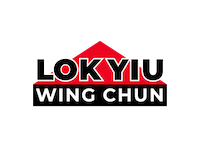BEGINNINGS
The birth of Wing Chun is wrapped around many fabulous legends. There are no actual historical proofs regarding the truthfulness of any of them but they are all fascinating nonetheless. What can be assured, in any case, is that Wing Chun is a martial art that has originated from the South of China as a self-defense kung fu style and, like for many others, it comes from the fluid integration of several influences that merged during a long period of time, thanks to those who have been dedicating their lives to perfection it and pass it on. There are different lineages, however, linked to the most prominent teachers of Wing Chun and embraced, also, by those who followed a specific master. They are: Yip Man, Yiu Choi, Jiu Wan, Gulao (Koo Lo) Village, Pan Nam, Yuen Kay Shan, Nguyen Te-Cong, Cho family, Hung Fa Yi, Pao Fa Lien and Fut Sao.
As ELYWCIMAA, of course, our traditional lineage passes through the life and teaching of Master Lok Yiu and the Great Master Yip Man. However, except for a relatively unimportant historical accuracy, related to the identity of what defines the true Wing Chun, what matters is the merit of the discipline itself. This is found exclusively in the actual practice. This is why to understand and appreciate the Lok Yiu Wing Chun above any others, it is necessary to try and live this exceptional martial art style and tradition.
The ELYWCIMMA believes that the style of Wing Chun taught by the Great Master Yip Man to our Master Lok Yiu cannot be perfected. Its system of movement has been so perfectly designed that any variation actually will result in the failure of the self-defense system itself. Modifying the Lok Yiu Wing Chun with our own ideas, will not bring a better Wing Chun but a different one, more failable and infective. Every moment, training sessions, principles, theory, and techniques are essential components that make the Lok Yiu Wing Chun the most effective. Whoever wants to appreciate and learn such beautiful wing Chun, must decide to discard any other previous knowledge of martial arts to plunge themselves into the fluidity of deeper knowledge.


